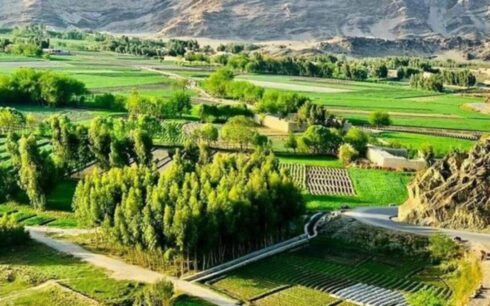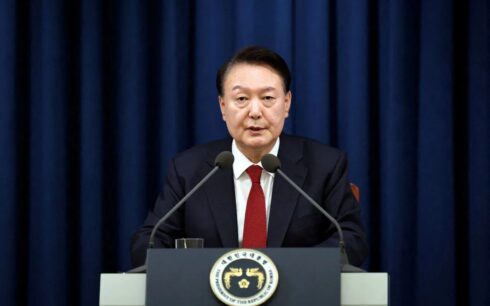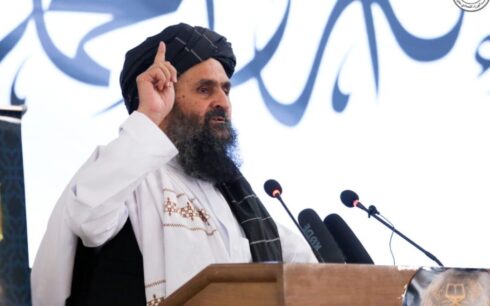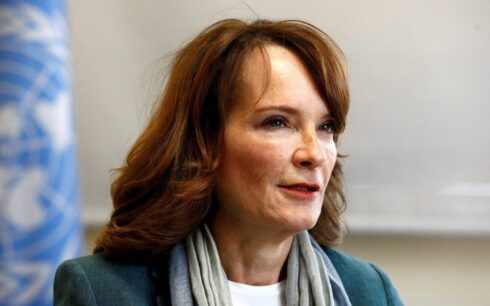Pakistan’s Foreign Minister Bilawal Bhutto-Zadari said this week on the sidelines of the Munich Security Conference 2023 that terrorist organizations have bases in Afghanistan and that the Taliban are not capable of fighting these groups.
He also urged the international community to help in strengthening the Taliban army.
In reaction to Bhutto-Zadari’s remakes, the Taliban stated that it “has proven in practice to regional and world countries that, with professional and experienced security forces, it has not allowed anyone to use the territory of Afghanistan against others.”
The Taliban-run foreign ministry’s spokesman Abdul Qahar Balkhi said in a series of tweets that the group has taken concrete steps toward boosting the security of Afghanistan and it was “thwarting past threats against regional security.”
“Pakistan’s recent insecurity is not new but something that has pre-existed for the past two decades. IEA (Taliban) remains determined not to allow anyone to use Afghanistan’s soil against other countries, particularly against its neighbors,” Balkhi said.
He added that the Taliban advises Pakistan to “discuss bilateral issues face-to-face with the Afghan government instead of complaining at international conferences.”
Pakistan is trying to exonerate itself from supporting terrorism
A number of political affairs experts meanwhile believe that Pakistan remains a supporter of terrorist groups and is now trying to exonerate itself in international meetings.
Rahim Mushfiq, a political affairs analyst, said in an interview with Amu TV, that Islamabad has harbored some of the most dangerous terrorist groups in its territory and that Pakistan uses the groups for its own political interests and survival.
A large number of religious schools – where extremism is taught – are located in Pakistan – more than in any other country – and the country uses the schools for its survival and regional agendas, Mushfiq said.
“Tehreek-e-Taliban Pakistan (TTP) and Afghanistan’s Taliban are two very clear examples that the world cannot ignore. These two groups were trained in Pakistani schools. Now, one of them became Pakistan’s aggressor, and the other, which is the Afghan Taliban, has been under the direct support of Pakistan since its establishment,” he added.
The experts noted that Islamabad had been providing the Taliban leaders with shelters and facilities inside Pakistan territory in the past two decades.
“In the past twenty years, the Taliban’s war with the Afghan army was managed from Pakistan’s soil and the Pakistani government directly supported them (Taliban),” Mushfiq added.
Mushfiq said that Bhutto-Zadari’s claim stating terrorist groups operate from Afghanistan was shameful adding: “It was Pakistan that created the Taliban for its own interests and has supported it.”
According to him, groups that have been trained in Pakistan have become a challenge and a threat to its security situation and for this reason, the country wants to “somehow” convince the world that Islamabad itself was a victim of terrorism and that it does not support terrorist groups.
Pakistan has always supported the Taliban
Aziz Maarij, another political affairs analyst, also stated that most Pakistani religious parties are accused of promoting extremism and are “on the list of international sanctions.”
Maarij also called on the Taliban to raise their voices over Bhutto-Zadari’s statements.
Zia Hussaini, a former university professor, and political analyst, also stated that tensions between Pakistan and the Afghan Taliban have escalated.
“Pakistan’s [demands] have not been fulfilled by the Taliban in return for their support, so now it is targeting the Taliban. While it was Pakistan that supported the Taliban in various ways for the past 20 years,” Hussaini added.
“Weren’t these Pakistani officials who lobbied for the Taliban on international stages and in separate meetings with representatives of countries and encouraged the world to help and recognize the Taliban after they came to power? Now that the Taliban have not met Pakistan’s expectations, they [Taliban] became bad people,” he said.
According to him, Pakistan is facing increasing challenges; it’s economy is crashing; it is facing a shortage of fuel and food; and so far it has not been able to secure any bailouts from international banks.
Hussaini stated that there is no doubt that Pakistan’s political life is in imminent danger if the current situation continues. After the Taliban came to power, Pakistan expected to gain Afghanistan’s financial resources and income in order to overcome the current crisis, however, this did not happen.
“One of Pakistan’s recent demands from the Taliban was to [thwart] Tehreek (TTP) from war and to [get the group to] start negotiations with the government of Pakistan, which was not fulfilled, and the security situation of Pakistan worsened after the Taliban takeover. Now Pakistan is trying to damage the Taliban,” Hussaini added.
Pakistan’s Foreign Minister Bilawal Bhutto-Zadari’s comment regarding the existence of terrorist bases in Afghanistan comes after Former Pakistani Foreign Minister Shah Mehmood Qureshi and other Pakistani officials repeatedly urged the international community to recognize the Taliban.





